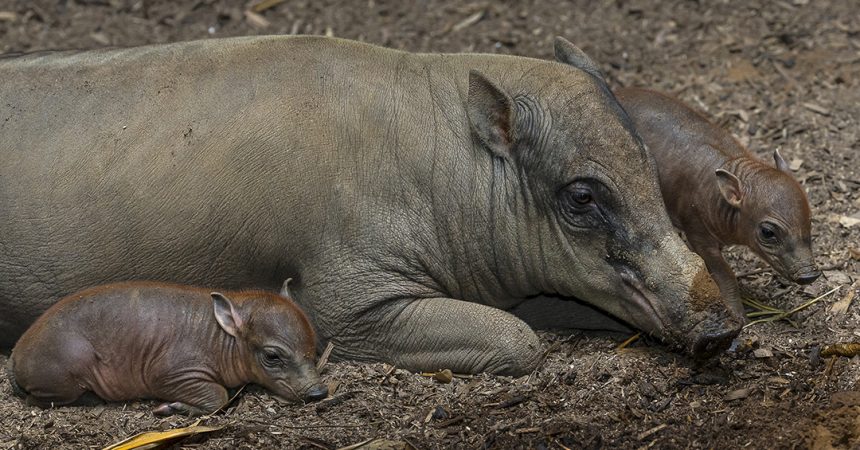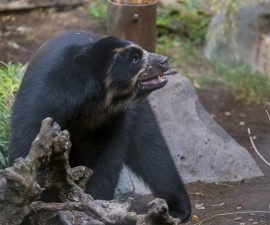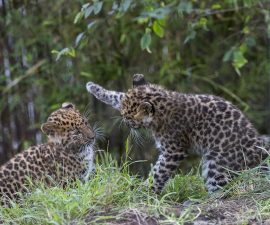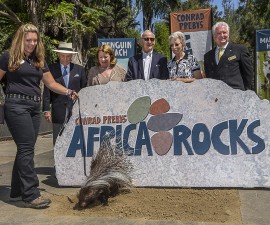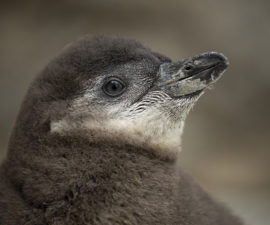Two tiny 2-week-old North Sulawesi babirusa piglets played in the rain and explored their muddy habitat this morning (Sept. 21, 2016) at the San Diego Zoo. First-time mom, Fig, gave birth to the Zoo’s first-ever babirusa piglets on Sept. 6. The cute pair’s charisma and youthful energy have led some of the Zoo’s most avid members to call them “figlets”—and keepers think the moniker is a perfect fit for these new baby pigs.
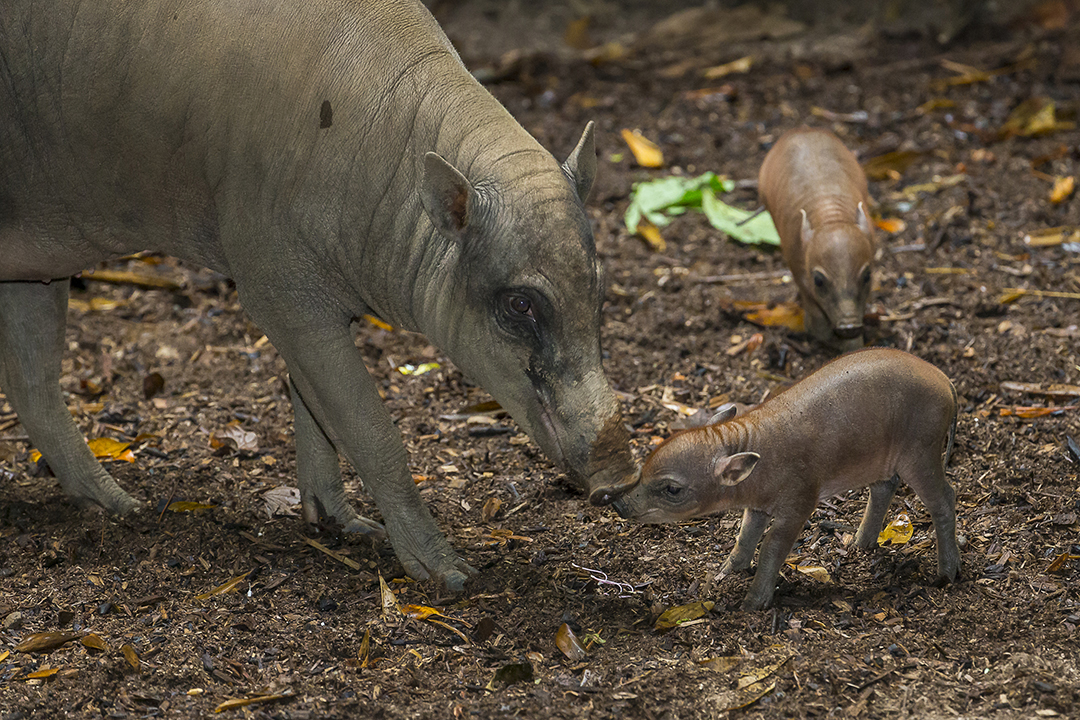
Although the sex of the piglets has yet to be determined, they’ve already started sampling solid food and nurse multiple times a day. “Fig is taking great care of her piglets. They’ve been having a lot of fun interacting with their mom and getting in the way when she’s trying to eat,” said Victoria Girdler, senior keeper. As the piglets grow and develop, they will be reintroduced to their father, Jethro, at 3 to 4 months of age.
While they are members of the pig family, babirusa are unlike ordinary pigs. The name babirusa means “pig deer” in Malay and refers to the animals’ mixed appearance, with slim, deer-like limbs, and a stocky pig body and snout. They have small litters, the young develop quickly and piglets lack camouflage stripes that are common in other pig species.
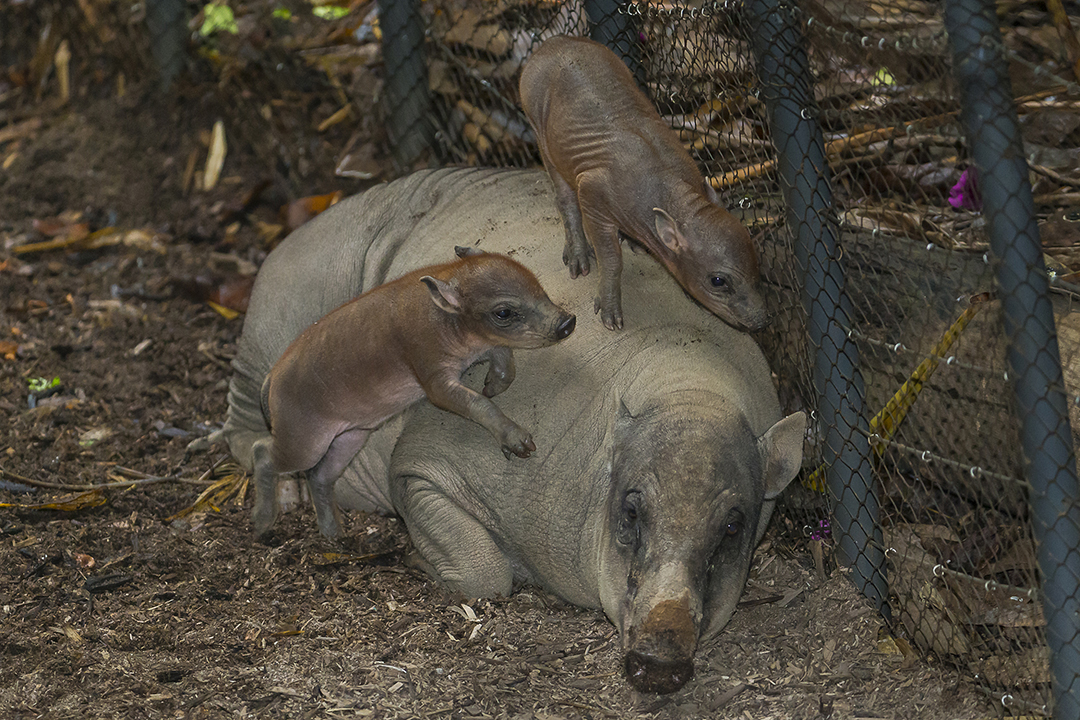
North Sulawesi babirusa are the largest of the three babirusa subspecies and are endemic to the island of Sulawesi, Indonesia. These wild swine inhabit tropical rain forests and thrive on the banks of rivers and swamps, but their exact range is unknown. The species was once thought to be stable, but a long history of hunting, habitat loss, habitat fragmentation and commercial logging has caused their population to decline by more than 30 percent in the last 18 years. Three-fourths of their lowland forest habitat has been destroyed due to commercial logging, and babirusa have disappeared from sections of the island. They are categorized as “Vulnerable” on the International Union for Conservation of Nature (IUCN) Red List of Threatened Species, but current threats to their survival in the wild may be more severe than previous assessments indicate.
Visitors to the San Diego Zoo can see the new babirusa “figlets” on the forested Tiger Trail walkway from 9 to 11:30 a.m. daily.

